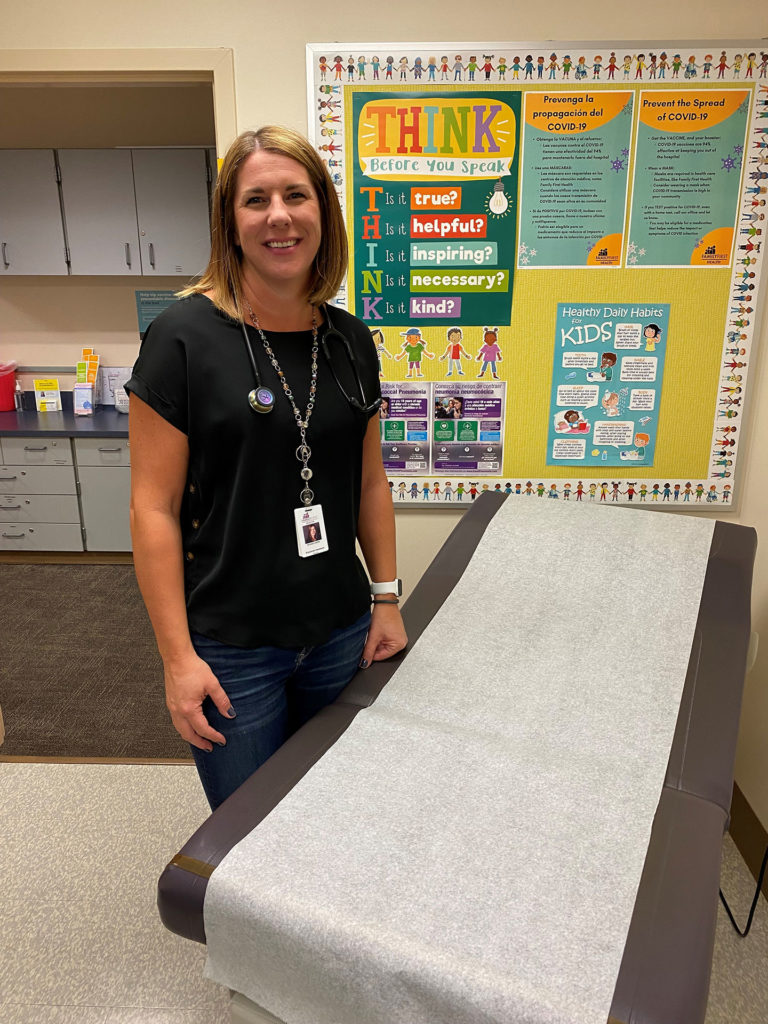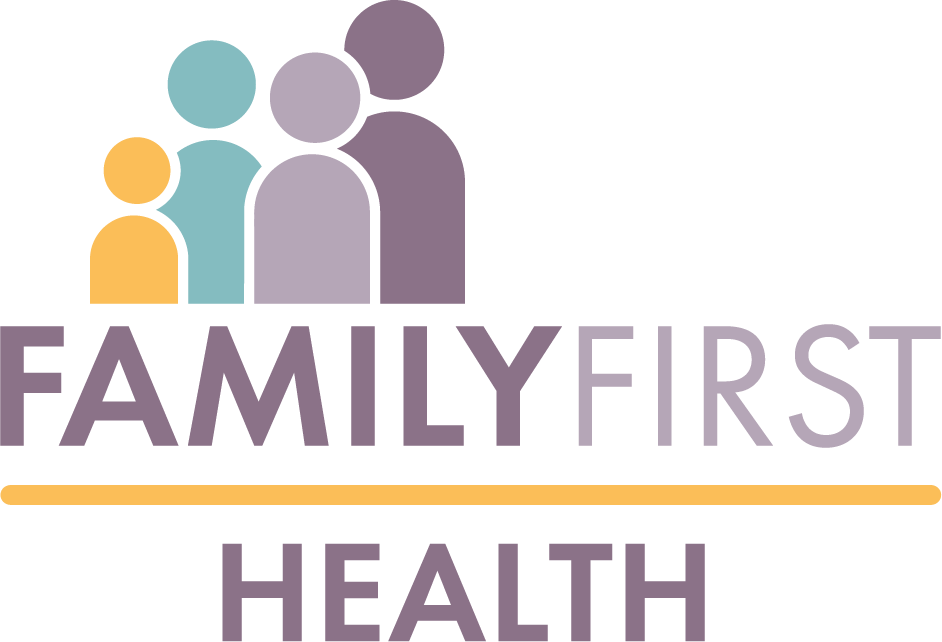As part of the celebration of our 25th anniversary of our Hannah Penn Center, we would also like to celebrate Brooke Lasher, PA-C, who has hit 10 years being with our Student Based Health Center at our Hannah Penn Center. Lasher joined Family First Health in 2012 after receiving her Masters of Science in Physician’s Assistant Studies at the University of Saint Francis. We hope you enjoy learning about Brooke and her perspective on student based health.
 Q: Why have you remained committed to working in student based health for 10 years now?
Q: Why have you remained committed to working in student based health for 10 years now?
A: When I first joined Family First, it was more about scheduling; it just worked for my family’s schedule. But as I got here and became more engaged with the students at the school, the way we’re set up here is so that I’m through the school nurse’s station and it gives me a way to impact the youth who are here even if it wasn’t through our visits. I just love that the school nurse was working with me who’s also working with the school’s social worker, the school based counseling, and all of them coming together. I like to engage a lot with my patients and their families, and because we’re small, I am able to do that and practice the way I want to. I have patients who bring me birthday gifts, there’s one patient who says “I love you. I’ll see you later†as she’s leaving the office. I love that. I was put in this position and I fell in love with it.
Q: Why do you think school based health centers are important?
A: They’re important because the school is the hub of the community. The kids are required by law to be at the school and so by tying health care to a place that requires kids to be there, we’re making it more accessible. A lot of the kids who are at the school, their parents’ lives are so hectic, maybe they’re working two jobs, or maybe it’s a single mom who is working and has four kids, but by being here in the school, we take some of the stress away and for patients who may have social or other medical issues, there’s other resources within the school.
Q: What is some of the growth you have seen at Hannah Penn over the past 10 years?
A: The presence of behavioral health here has been huge. Just being able to meet the needs of patients beyond just a doctor visit, adding health coaching has been really cool in the last six months. It adds another layer to help meet the needs of patients. Within the past few years we’ve added community health workers who are actually able to go out into the community and there’s constant growth of each of those different units.
Q: What role do you see the Hannah Penn Center having amongst the students and community overall?
A: My hope is that through the Hannah Penn Center, we are able to provide all the same benefits that upper middle class receives with medical care and be able to bring that to a community where the financial resources are more limited. But also to provide them with health equity. We exist not only to serve the students but also for the families of the students as well.
Q: What are some success stories you’ve seen?
A: There are numerous success stories, but there’s one that comes to mind. Hannah Penn does a lot of the autistic support for the city, and there’s a good number of autistic students here. The school nurse identified one and became concerned because she saw some markings on the back of the patient’s neck and noticed some weight gain. With a lot of autistic students, they respond to using food as an incentive. Once he came in, there were some bumps in the road but we managed to find out he was pre-diabetic, and were able to get him initiated on treatment. Not only were we educating the student and the parents, but we were also educating the teachers and the support staff that we’re working with the student about what kinds of foods to have and ways to move away from food based rewards for him. In the next follow up, the student had lost like 10 pounds and the sugar numbers were normalized. The student was doing really well and the parents were excited and very pleased with the results.
Q: What is your vision for the Hannah Penn Center as a health hub for the school and for the community?
A: By developing a relationship with the students, this allows us to reach their families so then the goal is to raise up a new generation of health conscious individuals. To help raise awareness of health, healthy eating, healthy living, and healthy choices and making that the new norm.
Q: What would your message be to the families and to the students of Hannah Penn?
A: We care about you. I want them to know that we do what we do because we care and we’re here. There are different stages of engagement and health, and we understand and are willing to meet you where you’re at. If you got one part of your health you’re willing to work on but don’t want to work another, or don’t feel like you have the bandwidth to do that, that’s fine, we’re here, and we’re not going anywhere. When you’re ready to work on something else, we’re still going to be here because we care about you.
